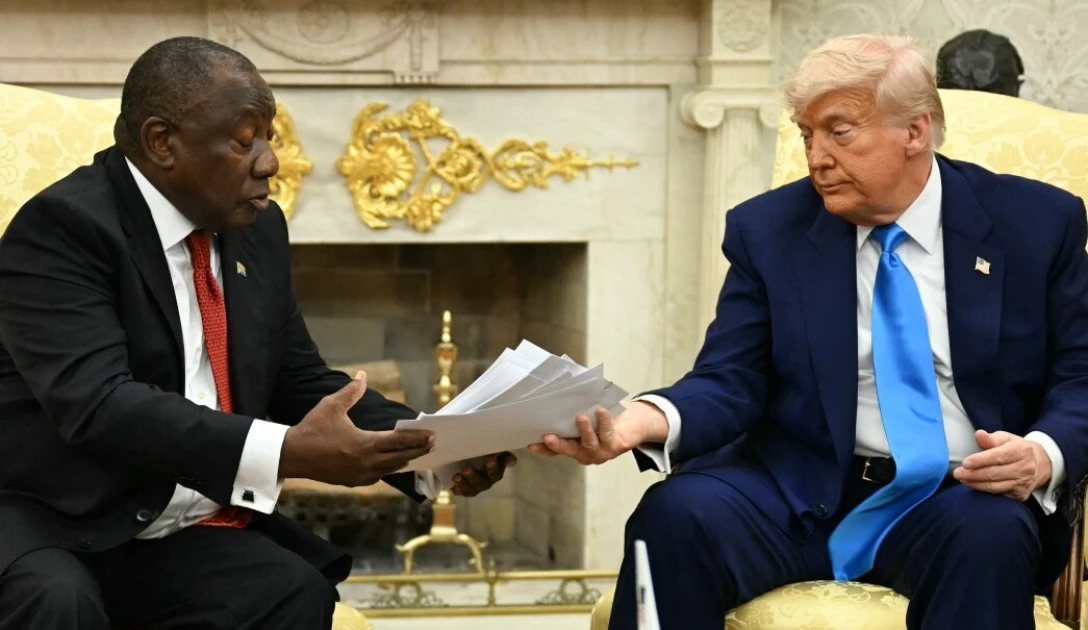Trump administration weighs refugee cap of 40,000, prioritizing white South Africans

Besides Afrikaners, the U.S. also expects to admit some Afghans who supported U.S. forces during the war and may allocate spaces to Ukrainians.
The Trump administration is considering setting the U.S. refugee admissions cap at about 40,000 for the next fiscal year, with most of the slots expected to be allocated to white South Africans, according to internal communication and officials briefed on the discussions.
The plan marks a dramatic departure from the country’s traditional refugee policy, which for decades had bipartisan support.
An internal email seen by Reuters shows Angie Salazar, the top refugee program official at the Department of Health and Human Services (HHS), telling state-level refugee workers that she anticipated the cap to be 40,000.
Two U.S. officials who spoke anonymously confirmed that about 30,000 places were earmarked for Afrikaners, a Dutch-descended minority group in South Africa.
If adopted, the figure would be a steep reduction from the 100,000 refugees admitted under President Joe Biden in 2024, though still higher than the record-low 15,000 ceiling Trump set in his final year before leaving office.
A separate source said that even lower figures, including a cap of 12,000, had been under discussion.
Trump froze refugee admissions shortly after returning to office in January but later announced a program for Afrikaners, arguing they faced violence and discrimination in South Africa—claims the South African government rejected.
The administration has debated whether non-white South Africans could also qualify, Reuters reported in July.
Besides Afrikaners, the U.S. also expects to admit some Afghans who supported U.S. forces during the war and may allocate spaces to Ukrainians. Some slots would remain open for other nationalities, according to the email and officials.
White House deputy press secretary Anna Kelly stressed that no decision was final until the president made his determination for fiscal year 2026, which begins on October 1.
"President Trump has a humanitarian heart, which is why he has welcomed these courageous individuals to the United States," Kelly said. "Refugee admission caps will be determined next month, and any numbers discussed at this point are pure speculation."
A senior State Department official referred to the department’s recent human rights report, which flagged concerns about “inflammatory racial rhetoric against Afrikaners and other racial minorities” in South Africa. HHS directed questions about the cap to the White House, while Salazar did not respond to requests for comment.
The first 59 South Africans arrived in the U.S. in May, but only 34 more had followed by early August, a White House official said.
Meanwhile, the refugee program has been facing staffing problems after the State Department laid off workers in July. To plug the gap, HHS reassigned some staff to refugee resettlement, including 13 employees sent to Pretoria despite most lacking direct experience in refugee screening.
An HHS spokesperson said trained personnel had been detailed to support the program but clarified they were not interviewing applicants on claims of persecution.
Some of the new arrivals have raised concerns about reduced benefits. After Trump took office, refugee cash assistance and healthcare support were cut from a year to four months.
One of the initial arrivals wrote to HHS on May 27, saying their family had spent about $4,000 on transport, food, and SIM cards while struggling to find work without Social Security numbers.
“We have applied for jobs like crazy but to no avail because we found people here are not keen on hiring refugees without an SSN,” the family member wrote in an email.
The person worried about losing housing after their hotel stay expired in June. While HHS said it takes complaints seriously and ensures refugees in temporary housing receive food and essentials, a source familiar with the matter said some South Africans expected full benefits that were no longer available under Trump.
